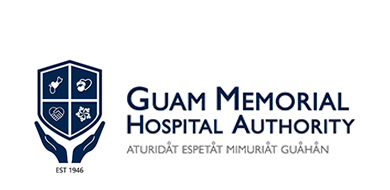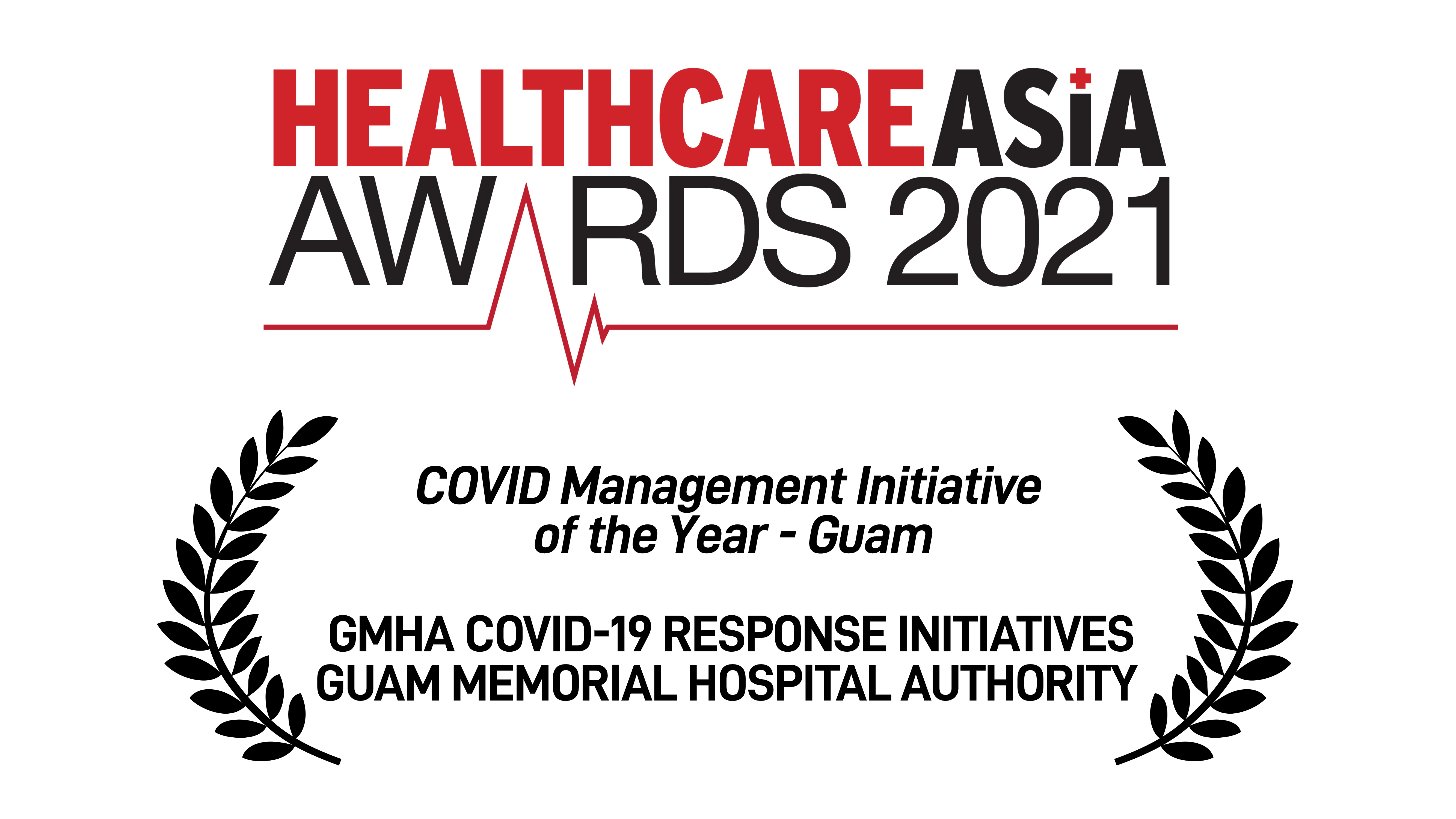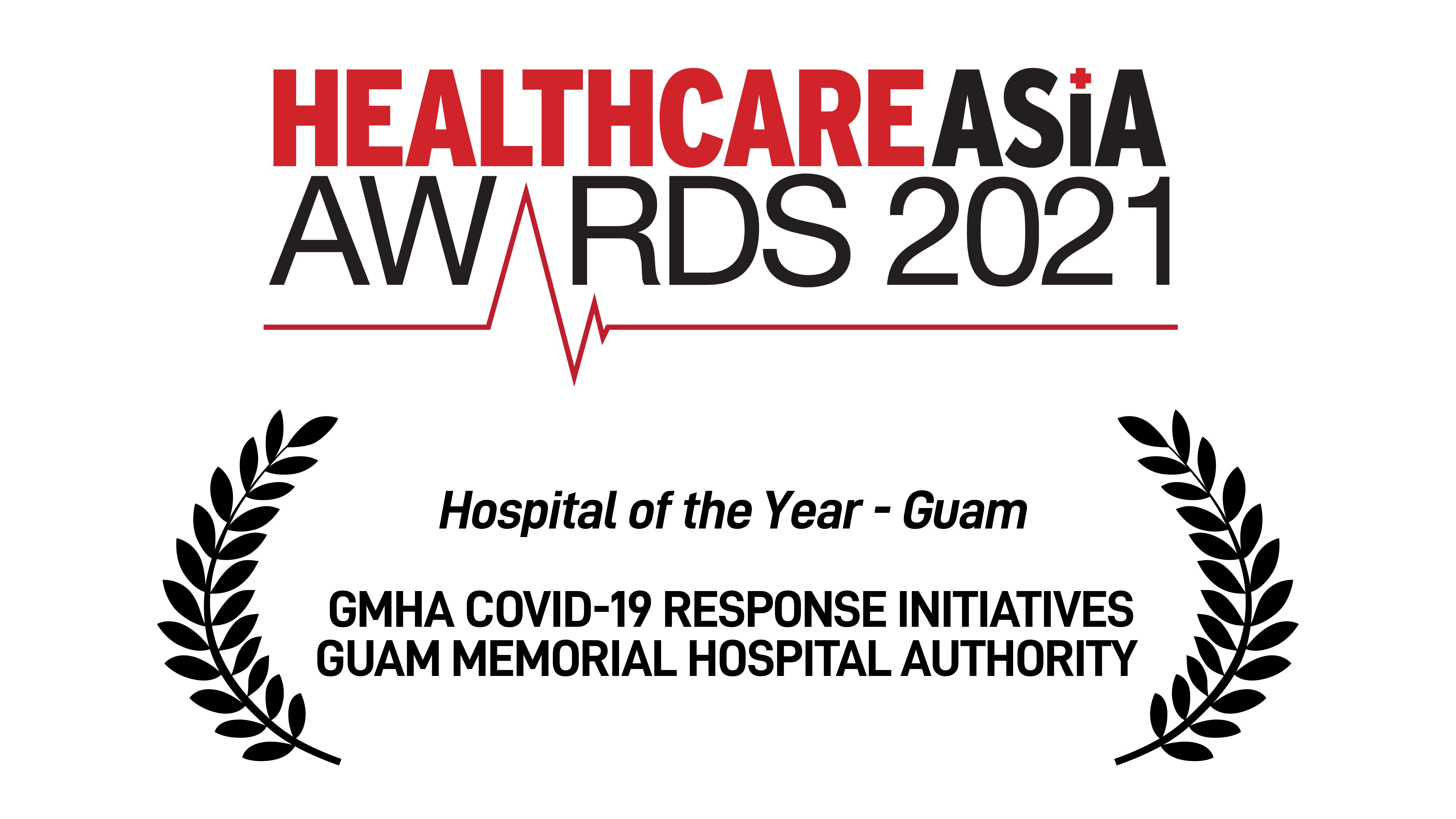Each patient admitted to Guam Memorial Hospital Authority (GMHA) regardless of age, physical condition, or cognitive status possesses certain rights and responsibilities.
Each staff member of Guam Memorial Hospital is responsible for ensuring each patient’s rights are guaranteed from admission to discharge. A part of this responsibility is to be able to inform patients or their legal representatives of the mechanisms the Hospital has established to exercise these rights. Included are mechanisms to participate in one’s own care, to express a complaint, to inform Hospital staff of wishes for use of advanced technology in the event the patient becomes incompetent to direct his/her own care, and to resolve conflicts of an ethical nature.
For patients under the legal age, or those whose medical condition or cognitive status render them unable to act in their own behalf, the legal representative will assume the responsibility to make decisions on their behalf, will provide consent for treatment, and will assume the listed patient responsibilities.
Any patient or legal representative who has a question involving care, wishes to express requests on the use of advanced directives, believes that a patient right has been violated, has a complaint, or is experiencing an ethical conflict regarding care, should exercise their right to discuss this concern with the patient’s physician(s),licensed technician/therapist, licensed nurse, head nurse, nursing supervisor or the appropriate Associate Administrator.
Should there be a concern regarding patient care, resolution of this concern should be attempted through open discussion by the involved parties. If resolution cannot be obtained at this level, the patient or legal representative shall have the opportunity to file a complaint according to the Hospital’s Complaint Policy.
Guam Memorial Hospital Authority affirms the following patient rights and responsibilities for each patient. GMHA employees are able to explain the following patient rights and responsibilities and the mechanism in place to exercise these rights.
PATIENT RIGHTS:
- MEDICAL TREATMENT
- The right to the best care medically indicated for the patient’s needs that is, to the most appropriate care available.
- The right to receive treatment and/or accommodations that are available and medically indicated regardless of race, ethnicity, age, sex, sexual orientation, gender identity or expression, culture, socioeconomic status, education, language, physical or mental disability, or religious background or source of payment.
- The right to be interviewed and assessed concerning the patient’s pain and discomfort levels and to receive proper treatment for such.
- The right to be free of all forms of abuse, neglect, exploitation or harassment and receive help obtaining access to protective and advocacy services.
- The right to be free from restraints and seclusion of any form that are not medically necessary or are used as a means of coercion, discipline, convenience, or retaliation by staff.
- The right to receive an appropriate medical screening, examination and/or treatment for an emergency medical condition within the capabilities’ofthe hospital, regardless of the patient’s ability to pay for such services.
- INFORMATION
- The hospital respects the patient’s right to and need for effective communication.
- The right to be fully informed of all patient rights and receive a written copy.
- The right to have these Patient Rights and Responsibilities translated in a language that is understood by the patient. The right to free interpreter and translation services; to obtain input into the treatment plan, provide consent for treatment and to express a complaint, or guidelines for care in the event the patient is unable to act on his/her behalf. In addition, hearing impaired patients have the right to use the telecommunications device for the hearing impaired (TDD) to the extent allowed by their medical condition.
- The right to know the identity and professional status of individuals providing services and to know which physician or other practitioner(s) who is/are primarily responsible for the patient’s care. This includes the right to know the existence of any professional relationship among individuals who are treating the patient as well as the relationship to any other health care of educational institutions involved in the patients care.
- The right to obtain from the physician responsible for coordinating the patient’s care, complete and current information concerning the diagnosis (to the degree known), treatment, and any known prognosis. This information should be communicated in terms that can reasonably be expected to be understood. When it is not medically advisable to give such information to the patient, the information should be made available to a legal representative. The right to have the patient’s personal physician promptly notified of his/her admission to the hospital.
- The right not to be subjected to any invasive procedure without prior clear explanations, subsequent understanding of the desired benefits of and the risks associated with the procedure, and the obtaining of voluntary consent.
- Where medically significant alternatives for care of treatment exists, the patient shall be so informed and he/she will be
afforded the right to choose from the alternatives presented. - The right to be informed of the hospital rules and regulations concerning conduct of patient/legal representative/visitors.
The patient or legal representative is entitled to information about the hospital’s mechanism for the initiation, review and resolution of their complaints. - The right not to be transferred to another facility until he/she receives a complete explanation of the need for the transfer, a discussion of the alternatives to such a transfer, and provision of acceptance by the other facility. The patient has the right to be informed by the practitioner responsible for his/her care, or his delegate, of any continuing care requirements following discharge from the hospital.
- The right to have a family member or representative notified of his/her admission to the hospital and of patient’s choice be informed of his/her medical condition.
- DECISION MAKING
- The right to reasonable participation in decisions involving the patient’s health care and for providing consent to the treatment plan. To the degree possible, this consent should be based on a clear, concise explanation of the patient’s condition by the patient’s physician, a discussion of all proposed technical procedures, including the possibilities of any risk of death, lasting serious effects, or problems anticipated in the recovery process and the probability of recovery after the treatment or diagnostic procedure.
- The right to take part in any decisions or plans in the development and implementation of the patient’s plan of care.
- The right to be informed if the Hospital proposes to engage in or perform human experimentation or other
research/educational projects, investigation, or clinical trials affecting his/her care or treatment, and the patient retains the right to refuse to participate in any such activity without jeopardizing his or her access to care, treatment, and services unrelated to the research. - The right to consult with a specialist or obtain another opinion and to inquire about training and experience of the physician and/or healthcare professional participating in the diagnostic or treatment process.
- The right to refuse care, treatment, and services to the extent permitted by law. When refusal of treatment by the patient or legal representative prevents the provision of appropriate care in accordance with professional standards, the hospital representative or physician may terminate their relationship upon reasonable notice.
- The right to formulate Advance Directives if patient is an adult and to have hospital staff and practitioners who provide care in the hospital comply with these directives as allowed by law.
- DISCHARGE
- The patient retains the right to be released from the hospital even if his/her doctor advises against it, uniess he/she has an infectious disease, which may influence the health of others, or if he/she is incapable of maintaining their own safety, as defined by law. If the patient decides to leave against the doctor’s advice, the hospital will not be responsible for any harm that this may cause and the patient will be asked to sign a “Release from Responsibility” form prior to leaving the hospital. The patient retains the right to refuse to sign this document. Failure to sign this form does not result in the hospital retaining responsibility for the patient.
- The patient has the right to be involved in planning for his/her needs upon discharge. The hospital, through its Interdisciplinary Discharge Planning Program will provide assistance to the patient and his/her family in providing for ongoing health care needs remaining upon discharge from the hospital.
- The right to review and request for copies of patient’s medical record by contacting the hospital’s Medical Records
Department. A fee will be charged for copies to be made. - The patient has the right to request from the Medical Records Department an accounting of disclosures of his/her protected health information (PHI) and the reasons for which the disclosures were made, with the exception of those disclosures made for treatment, payment, or healthcare operations, mandated by law or law enforcement purposes. Note: Fees may be charged.
- The right to receive spiritual counseling and support.
- The right to timely notice prior to termination of eligibility of reimbursement by any third-party payer for the cost of care.
RESPONSIBILITIES:
- COMPLIANCE WITH PRESCRIBED TREATMENT/HOSPITAL POLICIES AND REGULATIONS:
The patient is responsible for following orders for treatment made by their physician(s), and recommendations made for safety. Additionally the patient is to comply with hospital policies and procedures as explained by hospital staff. - UPDATE OF INFORMATION:
The patient has the responsibility to inform the appropriate hospital departments or staff member when he/she cannot keep a scheduled appointment; provide information about past illness, hospitalizations, medications, and other matters relating to his/her health; be open and honest with hospital staff, to identify immediately if he/she does not understand conversations with staff or if he/she feels that the instructions are such that they cannot be followed. - CONSIDERATION FOR OTHERS:
The patient has the responsibility to be considerate of other patients, and to see that his/her visitors are considerate as well, particularly with reference to noise. Patients are reminded that abusive language in the hospital is inappropriate and unnecessary. - VISITORS:
Visitors are expected to follow the visiting policies of the hospital. - CHARGES/COMPLETION OF APPLICATION FOR FINANCIAL ASSISTANCE:
- The patient also has the responsibility to be prompt about payment of hospital bills, to provide information necessary for insurance processing of his/her bills, and to be prompt about asking any questions that he/she may have concerning charges issued for services.
- The patient is responsible for filing applications for financihl assistance, as needed, on a prompt basis and to advise the hospital immediately once his/her eligibility has been determined.
- The patient is responsible for making arrangements to pay for all charges not covered by insurance or other
third party payers.
- IDENTIFICATION OF PROBLEMS/CONCERNS:
The patient has the responsibility to notify his/her physician, nurse or the nursing supervisor or senior administrative person on
call when there is a perceived or witnessed violation to these patient rights and responsibilities. - ACKNOWLEDGEMENT OF RECEIPT OF PATIENT RIGHTS AND RESPONSIBILITIES:
The undersigned certifies that he/she has read the Patient Rights and Responsibilities, acknowledges receiving a copy thereof and is the patient or parents or legal guardian or legal representative duly able to execute the above and accept its terms. - FINANCIAL:
- Regardless of the source of payment for a patient’s care, the patient retains the right to request and receive an itemized bill within a reasonable period of time and detailed explanation of charges for services rendered in the hospital.
- The right to inquire about the possibility of public assistance programs to help in the payment of his/her hospital bills and the right to receive information and assistance in securing such aid.
- GENERAL:
- The right to be treated respectfully and with dignity by others; to be addressed by proper names; to be listened to when he/she has a question or desires more information and to receive an appropriate and reasonable response to any reasonable request which is made for service. The right to expect individuality will be respected.
- The right, within the law, to personal and informational privacy, as shown by the following rights:To refuse to talk to or see anyone not officially connected with the Hospital, and not directly involved in his/her care to the extent allowed by law.
- To wear appropriate personal clothing and religious or other symbolic items, as long as they do not interfere with diagnostic procedures for treatment.
- In the hospital, when the patient is in a semi-private room, he/she can expect a reasonable attempt to keep the conversation private. When the patient is examined, he/she is entitled to privacy to have the curtains drawn, to know what role any observer or student may have in his/her care, to have any observers or students unrelated to his/her care leave if so requested by the patient.
- To expect any discussion or consultation involving the patient’s case will be conducted discreetly and that individuals not directly involved in his/her care will not be present without his/her consent.
- To request transfer to another room if another patient or a visitor in the room is unreasonably disturbing the patient.
- To be placed in protective privacy when considered necessary for personal safety.
- The right to expect reasonable safety insofar as the hospital practices and environment are concerned.
- The patient has the right to submit a grievance/complaint, either written or verbal, to the Guam Memorial Hospital. The patient must include in the report a mailing address and contact number. Once filed, GMH will investigate and respond in writing to inform the patient of the following: 1) name of the hospital contact person; 2) steps taken on the patient’s behalf to investigate the grievance/complaint; 3) the results of the grievance/complaint process; and 4) the date of completion. The hospital will respond to the patient within seven (7) days from date the grievance/complaint was filed.The patient may file a grievance/complaint Monday through Friday with the Guest Relations Department of the Guam Memorial Hospital. Contact number is (671) 647-2503. The Guest Relations Department is located on the Fourth (4th) Floor. During evening hours, weekends and holidays, a grievance/complaint may be filed with the Nursing Supervisor via
the hospital’s Operator at 671) 647-2555.The patient may also file a grievance/complaint with the Medicare State agency directly, regardless of whether the patient has previously filed a grievance/complaint with the hospital. The name, address, and telephone number of the State agency are:DIVISION OF SURVEY & CERTIFICATIONS, CMS
DEPARTMENT OF HEALTH AND HUMAN SERVICES
90 7TH Street, Suite 5-300 (5W)
San Francisco, California 94103-6707 (415) 744-3696






